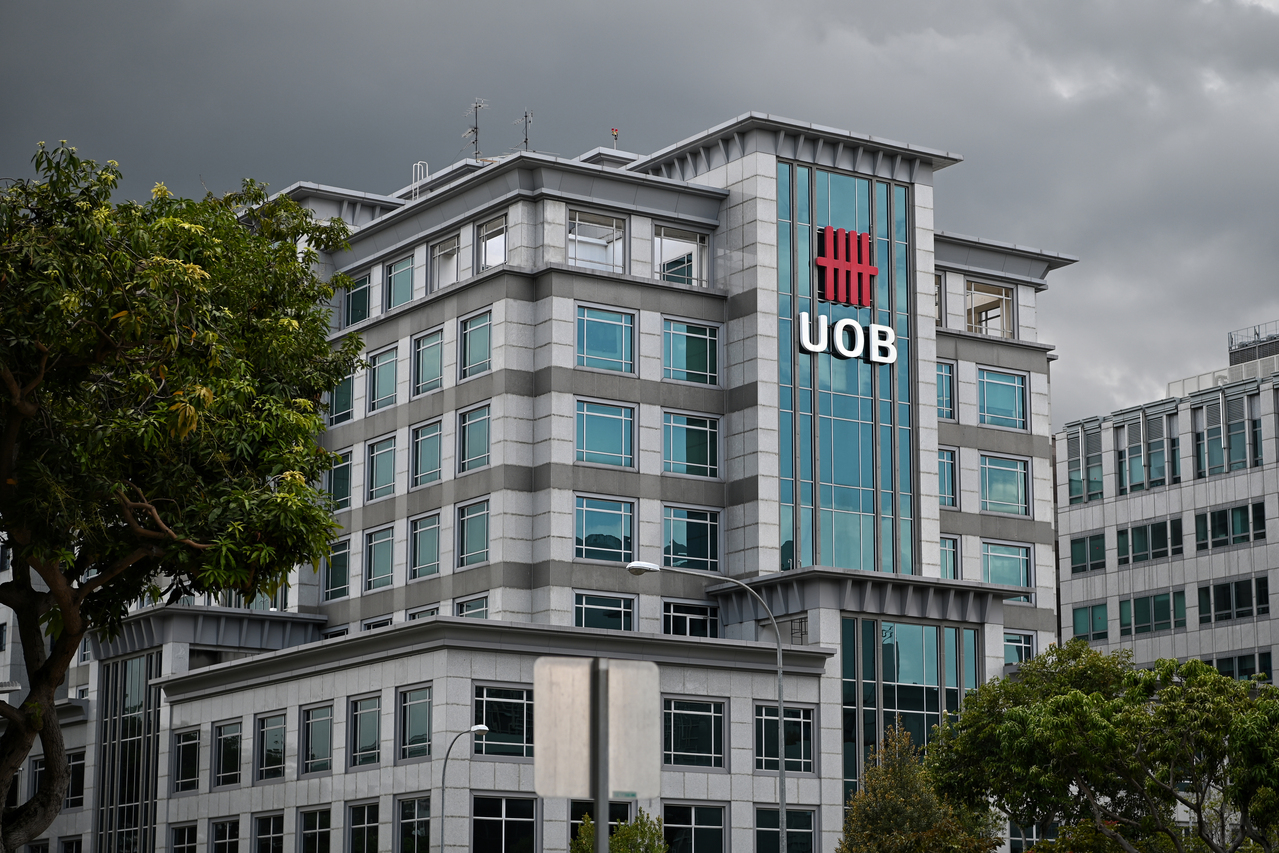UOB Q2 profit up 11% to $1.11b with rising interest rates; outlook clouded by slowing growth
Sign up now: Get ST's newsletters delivered to your inbox

The latest earnings reversed a 10 per cent dip in the first quarter that was due to lower fee income.
ST PHOTO: KUA CHEE SIONG
Follow topic:
SINGAPORE - UOB reported on Friday (July 29) an increase in second-quarter earnings as rising interest rates boosted its margins, but acknowledged that the outlook is clouded by risks of an economic slowdown triggered by moves to curb inflation.
Net profit for Singapore's third-biggest local bank came in at $1.11 billion for the three months to June, up 11 per cent from a year ago and ahead of the $1.095 billion forecast by analysts in a Bloomberg poll.
The latest earnings reversed a 10 per cent dip in the first quarter that was due to lower fee income.
UOB declared an interim dividend of 60 cents per ordinary share, representing a payout ratio of approximately 50 per cent.
Chief executive Wee Ee Cheong said the bank’s higher-than-expected net interest income was driven by rising rates and active balance sheet management.
“Looking ahead, there are differing views on how much the economy will slow as the world fights inflation. At UOB, our base case is that we do not expect a recession in our key markets although growth may slow,” he told a media briefing.
The bank cut its forecast for this year’s loan growth to a mid single digit, down from the mid to high single digit it announced during its first-quarter results.
Mr Wee said: “The market is slowing down and inflation is coming in. Our customers are also paying down their loans, so we still have to generate more loans.”
He added that the bank will in the next 12 to 18 months continue to benefit from rising rates through higher net interest income.
Second-quarter net interest income rose 18 per cent year on year to $1.9 billion. Net interest margin – a key gauge of banks’ profitability – rose 11 basis points to 1.67 per cent and loans grew 8 per cent.
However, net fee and commission income fell 3 per cent to $567 million as record credit card and loan-related fees were offset by lower wealth and fund management fees on the back of weaker market sentiment.
Other non-interest income rose 6 per cent on higher customer-related treasury income.
Total allowances fell to $137 million, largely due to lower general provisions set aside for bad loans, said UOB.
Its non-performing loans ratio deteriorated slightly to 1.7 per cent in the second quarter, compared with 1.6 per cent in the previous quarter.
This was mainly due to a single corporate account, said group chief financial officer Lee Wai Fai, without specifying details.
He added that the bank has a $3 billion exposure in China, accounting for 1 per cent of its loan book.
UOB has sued distressed Chinese developer Shimao Group Holdings and four units in Hong Kong, adding to broader signs of growing investor impatience amid China’s worsening property debt crisis, Bloomberg News reported.
Mr Lee said: “The rest of (the loan book) is well diversified, with strong loan-to-value ratios... We think that they are not in danger of turning into non-performing loans.”
The bank’s net profit was up 23 per cent from the $906 million it raked in in the first quarter. Its earnings for the first half of the year were flat at $2.02 billion, compared with the same period last year.
Giving an update on UOB’s acquisition of Citigroup’s consumer banking franchise in the region, Mr Wee said the bank is targeting legal closing for the deals in Thailand and Malaysia by the end of this year.
It expects to complete the acquisitions in Vietnam by the first quarter and in Indonesia by the fourth quarter of next year.
He added that 90 per cent of Citibank’s staff in Thailand, Malaysia and Vietnam have agreed to join UOB, while 75 per cent of the leadership team in Indonesia will remain on board.
UOB’s results kick off earnings season for local lenders. OCBC Bank will report its earnings on Aug 3, and DBS Bank on Aug 4.
Singapore bank stocks fell on Friday. UOB shares closed 2.51 per cent lower at $27.55, while OCBC slid 0.34 per cent to $11.67 and DBS declined 1.1 per cent to $31.47.
The benchmark Straits Times Index dropped 0.28 per cent.

